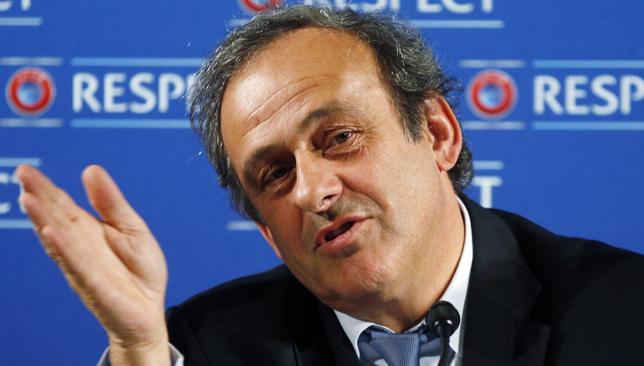
Michel Platini is clearly a man who thinks bigger always means better.
Never mind his preference for a bloated 40-team World Cup, Sunday’s qualification draw for the 2016 European Championship further highlighted just how diluted the world’s best international tournament is likely to become.
France will be the last single nation to host the tournament in 2016, yet will be the first to experience the swelling of the competition from 16 to 24 teams.
Platini’s rationale, which he claims was supported by 51 of UEFA’s 54 member nations, is that by allowing more teams it creates greater diversity and gives more countries a chance for success.
In theory, there is nothing necessarily wrong with that. It all fits in with Sepp Blatter’s apparent ethos to be more globally – in this case continentally – inclusive. An admirable wish, but also deeply patronising.
Those footballing nations regarded as ‘smaller’ don’t necessarily need the sort of charity UEFA are offering. Croatia and Serbia are both perennial qualifiers for international tournaments while Bosnia and Herzegovina will be participating at the World Cup for the first time this summer. Slovenia have also reached two World Cups and a European Championship.
More are sure to follow without UEFA’s intervention. Once upon a time, Scotland would grace the Euros on a regular basis but haven’t since 1996. Their problems don’t lie in the old elitism of the tournament but in issues within Scottish football: the lack of a competitive domestic league and a dearth of quality players, to name two.
Will a expanded tournament solve this? Probably not.
Platini may preach inclusiveness but his argument also looks like benefitting the more established nations. They will all enjoy a cakewalk into the finals due to the top two in each group qualifying automatically.
That wasn’t always the case. England missed out in 2008 while Portugal flirted with disaster before reaching Ukraine and Poland in 2012 via a play-off.
It will now take something extraordinary for Germany, Italy, the Netherlands, England, Spain and Russia not to qualify, which affects the entertainment of the qualification process in itself as it becomes more predictable and less enjoyable to watch.
But it’s of course no secret their presence helps guarantee considerable television viewing figures, generates lucrative sponsorship deals and boosts the overall marketing of the event.
The great strength of the Euros was always it’s competitiveness. It’s an awful cliché but there were really no easy games (except maybe those involving the Republic of Ireland in 2012).
Of the 16 there were arguably 8-10 who could win it, the rest all having a realistic chance of reaching the knockouts.
Since Euro 2000, each tournament has outstripped it’s partnering World Cup, held two years later, in terms of quality and amount of memorable matches.It’s difficult to envisage 2016 enjoying that status.
There is likely to be an abundance of mismatches in the group stages, while the dreaded dead rubbers in the third game (so prevalent at the World Cup) could become a unwanted fixture.
Sometimes less is more, Michel.